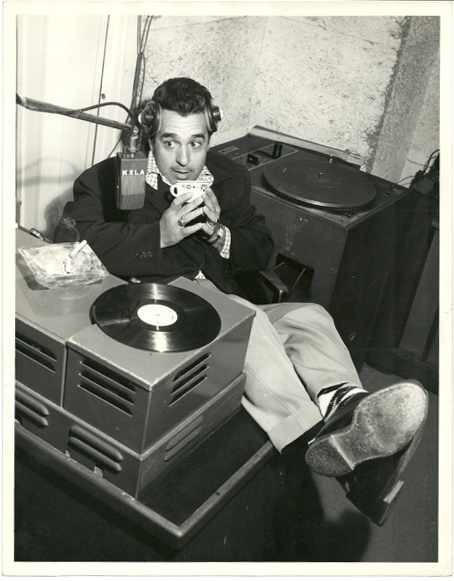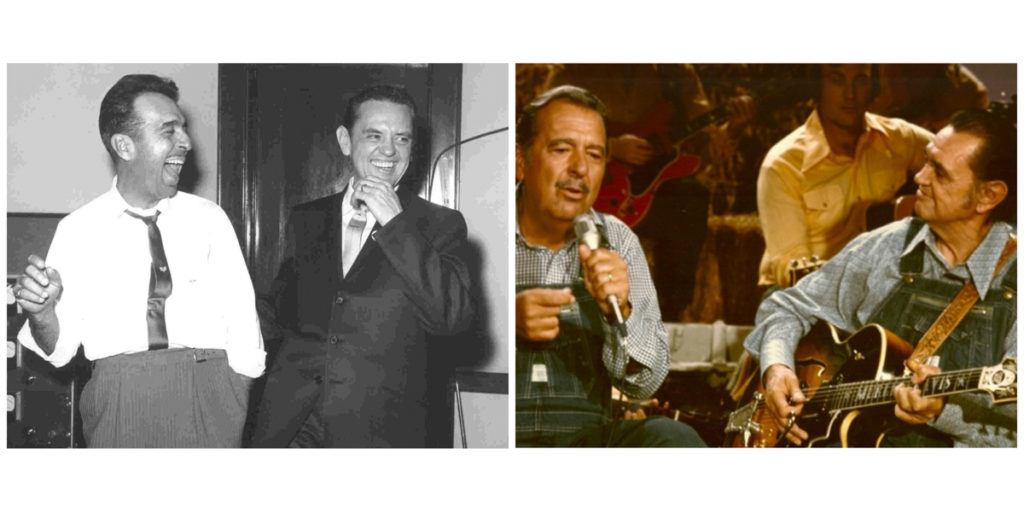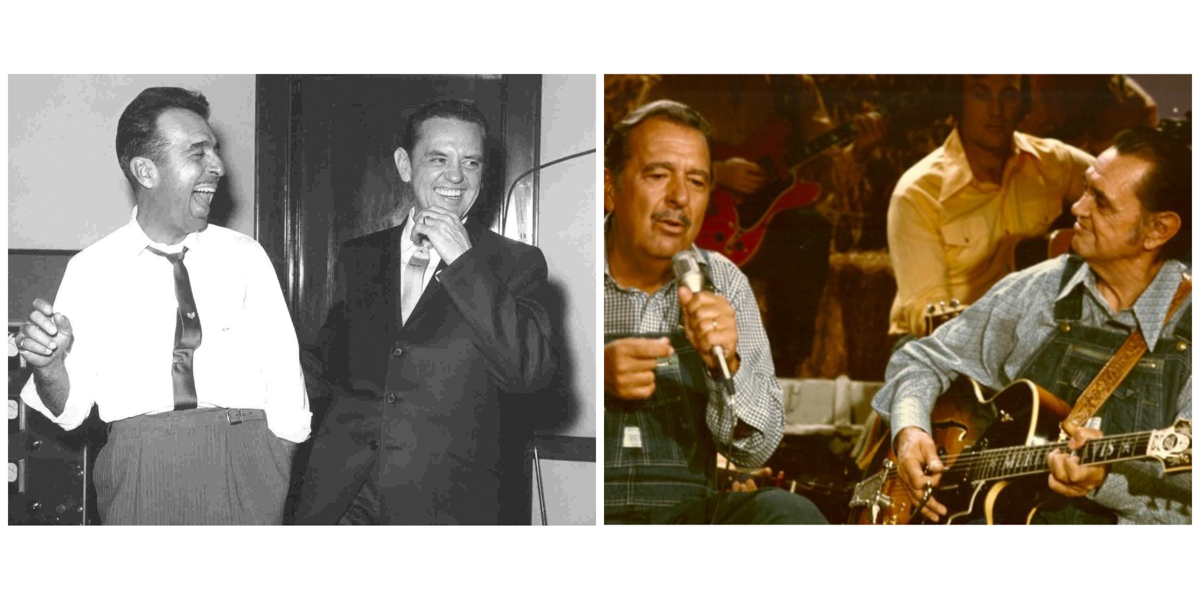By Summer Apostol, October 17, 2017
Today marks the anniversary of two important dates in music history. On October 17, 1991, Tennessee Ernie Ford passed away, leaving behind a wide-ranging and hugely significant musical legacy. It was also on October 17, this time in 1955, that one of Ford’s most important and well-known songs was released: “Sixteen Tons.”
Born Ernest Jennings Ford in Bristol, Tennessee, on February 13, 1919, Ford would become a local legend and a national treasure. He paved his way in the world through his gregarious personality, his humor, his wit, and most notably, his distinctive baritone singing voice. Music had been a part of Ford’s life from a young age; in his memoir, he recalled: “We sang at home, we sang at church, and we sang at weddings and funerals and at prisons or wherever there happened to be a need for it. Not for money, mind you – we never got paid. We just enjoyed singing.” And, everyone sure did enjoy hearing Ernie sing – from his hometown, childhood church to his professors at the Cincinnati Music conservatory to the nation through the radio and television airwaves and the many songs he recorded.

“Sixteen Tons,” the song popularized by Tennessee Ernie Ford, was originally written by Merle Travis. In 1947 Capitol Records encouraged Travis to write a series of songs that “sounded folky” for an album, one that would tap into the American folk music revival that was just starting to take off. Travis drew inspiration from his family back home in Ebeneezer, Kentucky. He took the line “You load sixteen tons, what do you get / Another day older and deeper in debt” from a letter his brother had sent to him about the death of World War II journalist Ernie Pyle. Another famous line of the song came from a saying Travis’s father used to say: “I can’t afford to die. I owe my soul to the company store.” And so, “Sixteen Tons” was born on Travis’s album Folk Songs of the Hills.
Ford and Travis knew each other from the recording of Ford’s first album, on which Travis played the guitar. As support for his friend and a general love for the song, Ernie performed the song on his daily NBC television show, resulting in a huge amount of fan mail focused on this song. Ford’s live performance of the song later that year at the Indiana State Fair brought the crowd to its feet – they loved it! So, when Ford came under pressure from Capitol to record a new song as he approached breach of contract due to an overfull schedule, he turned again to the song written by his friend. On September 17, 1955, Ford recorded “Sixteen Tons” as the B-side to the record’s A-side: “You Don’t Have to Be a Baby to Cry.”

Capitol thought the A-side song was going to be the record’s big hit, but “Sixteen Tons” – with its innovative modern instrumentation and a jazz-like arrangement including Ford’s distinctive snapping – was played more by DJs at radio stations across the nation. The success of Ernie’s version of “Sixteen Tons” was much bigger than the recording label could have ever expected. After only 11 days, the single sold over 400,000 copies, and after only a few months it became the fastest selling single in Capitol’s history with over 4 million copies sold. The record dominated both the country & western and pop charts in late 1955 and early 1956 – this crossover from country & western to pop was a rare thing, underlining the impact and appeal of Ford’s version of this song.
Tennessee Ernie Ford recorded hundreds of albums, won countless awards and honors – including three stars on the Hollywood Walk of Fame, a Grammy, and the Presidential Medal of Freedom – and hosted and guest starred on a number of television shows. His wide range of talent garnered him massive appeal, making him one of the most well-regarded crossover artists in modern history. His strides in multiple facets of the entertainment industry helped pave the way for other artists throughout the years.
Ford’s version, coupled with Travis’s relatable lyrics, account for the large number of covers of the classic “Sixteen Tons.” Notably, several of the covers are by artists whose musical background does not necessarily match with Ford’s musical legacy. Some of our favorite covers of “Sixteen Tons” are included below – have a listen and explore the evolution of Tennessee Ernie Ford’s influence on music through the years!
B.B. King & His Orchestra, 1956
Jose Guardiola (Spanish version “16 Toneladas”), 1960
Stevie Wonder, 1966
Johnny Cash, 1987
ZZ Top with Jeff Beck, 2016
Summer Apostol is an intern at the Birthplace of Country Music; she is studying history and sociology at Emory & Henry College.


